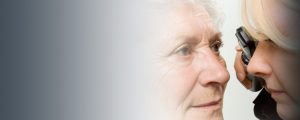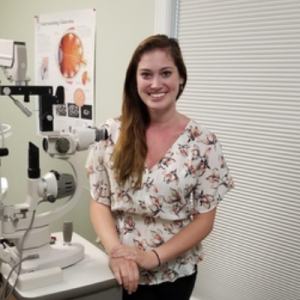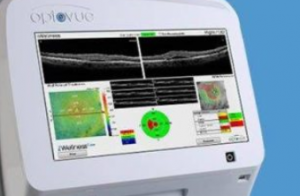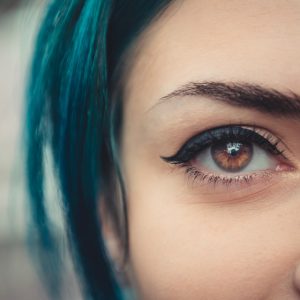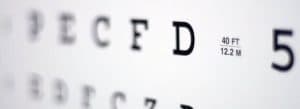Do you ever ask yourself: ‘I see clearly and don’t have any eye pain or discomfort, should I still see my eye doctor?’
The answer is yes.
Many eye conditions do not have obvious signs until permanent damage has already occurred. Annual eye check ups are important, as eye health and clear vision can be maintained by early detection of a serious eye condition.
Your sense of sight is arguably the most important sense you have. It is your primary way of gathering information about the world around you. Making an appointment to see your eye doctor when you notice a problem is a good start.
Here are our top 8 Q&As about when you should see your eye doctor:
Q1: Do I need to wait for signs of eye problems?
No.
Your eye doctor has the expertise to detect and treat any eye disease or condition, often long before you notice any symptoms yourself.
Many serious eye conditions, including glaucoma, macular degeneration and retinal diseases do not display noticeable symptoms until significant damage has been done to your visual system.
Q2: Are frequent or annual eye check ups important?
Yes.
Just like going to the dentist every year helps prevent tooth decay and wards off other dental issues, having regular comprehensive eye exams helps preserve your eye health and prevent any visual problems.
Comprehensive eye exams are important at every stage of life.
Children need to have annual eye exams to identify and address any potential eye conditions, such as nearsightedness, that can impede their success inside and outside the classroom.
It’s also important to detect and treat eye conditions such as amblyopia (lazy eye) and strabismus (eye turns), which require early intervention to prevent lifelong vision problems.
For adults, annual eye exams are the key to the early detection and treatment of eye diseases, such as glaucoma and macular degeneration, which can cause significant vision loss and even blindness without treatment.
And of course, it’s important for everyone to ensure their prescription for eyeglasses and contact lenses are up-to-date.
SEE RELATED: The Importance of Pupil Exams
Even if you have clear sight and comfortable eyes, schedule a regular eye exam with an eye doctor near you.
Q3: How bad should my eye pain be before I go to the eye doctor?
Any amount of pain in or around the eyes needs to be taken seriously and requires an eye exam as soon as possible!
Conditions, such as acute angle-closure glaucoma and corneal conditions can cause severe eye pain and rapidly result in a major loss of vision if left untreated.
Other conditions that cause eye pain include inflammation from conjunctivitis (pink eye), irritation from sand and other foreign bodies, dry eye syndrome and corneal abrasions.
At the first sign of eye pain, consult an eye doctor immediately to determine the cause and obtain proper treatment.
Q4: What should I do if I get something in my eye?
While tears can usually dislodge dust, a grain of sand or an eyelash, eyes aren’t designed to handle chemicals or a piece of wood, glass or metal that becomes embedded.
If you get something in your eye and it’s causing discomfort, contact your eye doctor immediately.
In the case of a minor irritant, rinse your eyes out thoroughly under running water for at least 15 minutes. This may flush out the object from your eye and will help minimize the chances that there will be any serious long-term damage.
DO NOT rub your eyes.
DO NOT try to remove the irritant or object with your fingers or tweezers.
Q5: Do I need to see my eye doctor if I have diabetes?
Yes.
It’s recommended that diabetics see their eye doctor for a retinal exam at least once per year, or more frequently as directed.
If poorly managed, diabetes can do a great deal of damage to your eyes.
High blood sugar can cause the small, delicate blood vessels in the eyes to begin leaking, resulting in a sight-threatening condition known as diabetic retinopathy.
Damage from diabetes can occur even before loss of vision is noticeable.
Q6: Should I tell my eye doctor if I’ve noticed flashes or floaters in my vision?
Yes.
Flashes of light and floaters could be the first sign of retinal disease, most commonly a retinal tear or detachment.
Floaters are bundles of clear or gray circles or lines that can be seen floating in your field of vision. They are the shadows created by microscopic fibers as they move through the vitreous fluid on the retina.
Seeing the occasional floater in your vision should not be a cause for alarm.
However, you should contact your local eye doctor if you begin to see flashes of light or floaters more frequently, or they appear to be significantly larger than they were before.
Q7: Can my doctor help me with dry eyes when using digital screens?
Yes.
Using any digital devices, including a computer, phone or tablet, can lead to significantly drier eyes.
Studies have shown that people who spend extended periods of time on computers, tablets and other electronics blink a lot less during their screen time, this can cause dry eye symptoms.
Q8: Can my eye doctor help relieve my headaches?
Yes.
Headaches can be a sign of eye problems such as eye strain, eye infection or eye conditions, such as glaucoma.
Headaches at the office may also mean you have problems with your binocular vision.
Your eye doctor will be able to evaluate your vision to identify exactly what the issue is. Once that has been determined, they will be able to prescribe treatment.
These treatments range from prescribing specialty eye drops for glaucoma, to designing a vision therapy program for you to follow in-office and at home to help fix your binocular vision dysfunction.
LEARN MORE: Guide to Eye Exams
Schedule a regular eye exam with an eye doctor near you, even if you think your eyes are fine and you have clear vision.
Frequent appointments with your eye doctor are essential as your sense of sight is arguably the most important sense you have.
Follow your eye doctor’s advice on when to see them next, even if you have clear vision!



